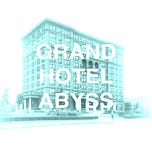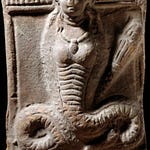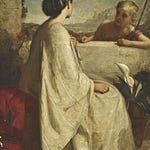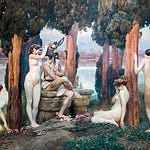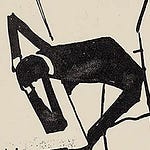Welcome back to The Invisible College, my series of literature courses for paid subscribers. The 2024 syllabus can be found here. This lecture is about the life and work of W. H. Auden. I consider the poet’s reputation as the third of the three great modern poets in British literature after Yeats and Eliot. I read from a Virginia Woolf essay introducing Auden’s ’30s generation of young, privileged, radical writers, including Christopher Isherwood, Louis MacNeice, Stephen Spender, and others. I discuss Auden’s biography, with a focus on his travels, both geographical and ideological, especially his journey with Isherwood to the U.S. and his journey from Marxism to Christianity. Then I turn to three themes of his anti- and incipiently post-modernist poetry, a poetry oriented toward “the mortal world” as against the occultism and obscurantism of high modernists like Yeats, Joyce, Eliot, Lawrence, and Woolf: the reality of love in “Lullaby” and “As I Walked Out One Evening,” the reality of politics in “Spain 1937,” “September 1, 1939,” and “The Unknown Citizen,” and the reality of poetry itself in “In Memory of W. B. Yeats” and “The Shield of Achilles.” I quote Orwell on Auden’s political dereliction in the Marxist ’30s and elaborate on Auden’s revisions of his own past work. I discuss his changing analysis of the causes of war (is “what all schoolchildren learn” adequate knowledge? must we love one another or die?) and how his view in the Yeats elegy that “poetry makes nothing happen” separates poetry from politics. Above all I consider his attitude toward love. I conclude with his rebuke to the modern and ancient worlds for their totalizing brutality, a brutality his poetry’s orientation toward the real may ameliorate, in the anti-Homeric, anti-Romantic ekphrastic poem, “The Shield of Achilles.” Please like, share, comment, subscribe—and please enjoy. The slideshow corresponding to the lecture is below the paywall.
Listen to this episode with a 7-day free trial
Subscribe to Grand Hotel Abyss to listen to this post and get 7 days of free access to the full post archives.


